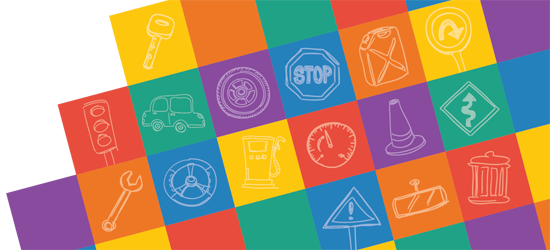
How long does it take to learn to drive?
How long is an essay on Nietzsche's cultural criticism? Too long. But that's not the point.
You are a unique little burning star: you are different from every living organism on the planet and so there is no definitive answer I can give you. WAIT, DON'T GO!
While I can't say "It will take you 10 months and 22 days to pass your driving test", I can give you some of the variables and a few tips to help you get through to test time efficiently.
Things that affect how long it takes to pass your test:
-
How many lessons you have a week
If you can fit it in, having more than 1 lesson a week is a good investment. When you first get started, too much time between driving lessons means you have to re-learn everything over and over.
Try 2 driving lessons a week for the first month or so, then once you've got the physical mechanics of making the car stop and go sorted, you could scale down if you wanted to.
From my own experience, having only 1 lesson a week for the whole time really slowed me down, especially when I was getting ready for my driving test. You can combat this with private practice though, so let's talk about that.
-
How much private practice you get
Once you've been learning a couple of months and taken your theory, it's a good time to ask your driving instructor about doing some private practice with a parent/sibling/friend. There are a few things you need to get sorted first (learner driver insurance, suitable supervising driver) but it's worth it.
Getting enough private practice is pretty much the key to your driving test success. It means you're driving in a different car, with a different person, at different times of day and in different weather. More experience of more driving situations = win.
Find out what you need to do before starting private driving practice.
-
How many different road situations you experience
There is an argument for taking longer to learn to drive: you get to experience the roads in different seasons. That means you get a taste of driving in icy conditions, in the dark and in traffic.
It also means you're likely to encounter road works, summer speeders, school letting out, tractors hauling harvesting machinery...all the things you'll have to deal with alone when you've passed your driving test.
Better to get them out of the way while you're with your instructor - having to overtake a wide load in icy conditions for the first time during your test would not be a nice experience.
-
How much you practise hazard perception
Your driving test is mainly an assessment of how well you can deal with hazards. It's not just how elegantly you steer or how smoothly you brake, although that's a help. The main point is SAFETY.
That means your hazard perception has to be spot on. Checking mirrors and reacting to what you see to keep yourself and other people safe.
You'll obviously get lots of practice with this in your driving lessons but you can do it on your own time by registering with Drive iQ and getting the DVSA theory test app if you don't already have it.
-
How good your Highway Code knowledge is
What does that sign mean? Who has right of way? DO I GO AT THIS GREEN LIGHT OR WAIT FOR THE ARROW?!
These are things that can mess up your test. It's expected that you'll know the rules of the road from doing your theory test, so something like stopping on hatchings, using a bus lane at the wrong time or not reacting to pedestrians waiting at a zebra crossing can cost you.
Little tip: don't abandon your theory test apps, books or CDs after you get the actual test out of the way. Keep up the revision, practise with your driving istructor and test yourself when you're out and about.












